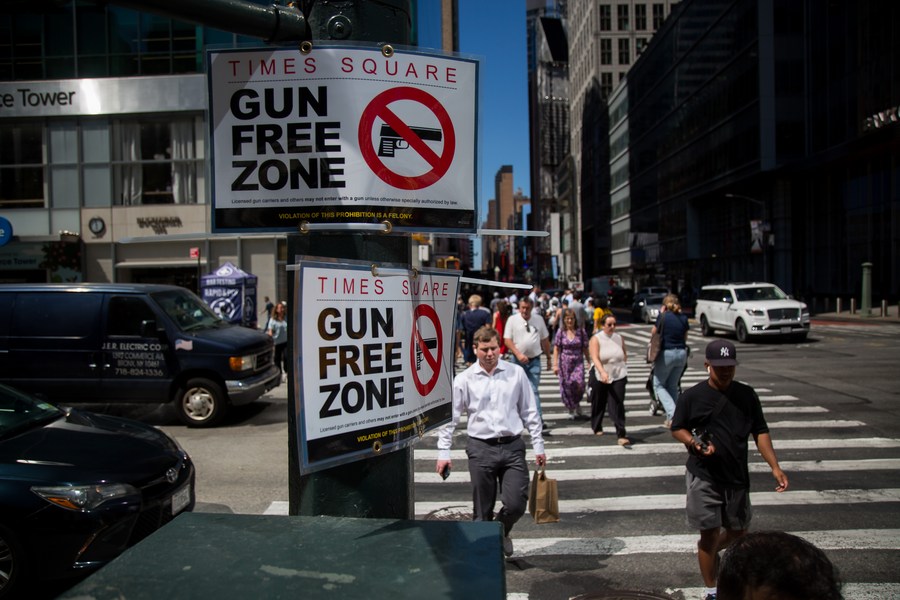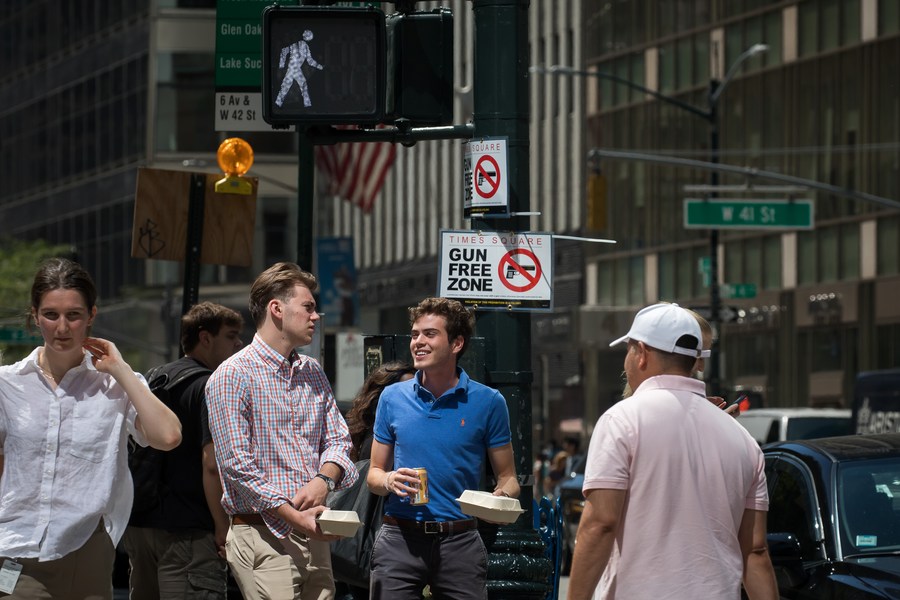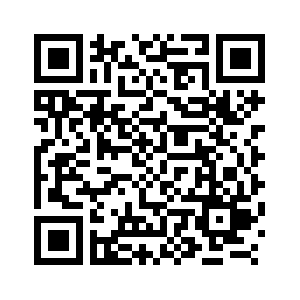Video: New York State started to prohibit concealed carry of weapons in designated sensitive areas across the state on Sept. 1, 2022 after the U.S. Supreme Court struck down the state's century-old concealed carry weapons law in June. (Xinhua)
"Individuals who are not exempt from this restriction under the law can be charged with a felony for violating its sensitive locations provision," said a press release from the New York State government.
NEW YORK, Sept. 2 (Xinhua) -- New York State started to prohibit concealed carry of weapons in designated sensitive areas across the state on Thursday after the U.S. Supreme Court struck down the state's century-old concealed carry weapons law in June.
Concealed carry permit holders are not allowed to bring their firearms into sensitive locations, including Times Square, bars, libraries, schools, government buildings and hospitals, according to the new law, which took effect on Thursday.

Passersby walk past gun-free zone signages near Times Square in New York, the United States, Sept. 1, 2022. (Photo by Michael Nagle/Xinhua)
"Individuals who are not exempt from this restriction under the law can be charged with a felony for violating its sensitive locations provision," said a press release from the New York State government on Wednesday.
Local law enforcement departments are installing signage in sensitive areas with the launch of a public awareness campaign.
"We will be posting signage at every entrance into Times Square informing those traveling through that the area is a gun-free zone and that licensed gun carriers and others may not enter with a gun unless otherwise specially authorized by law," said Eric Adams, mayor of New York City, on Wednesday.

Passersby walk past gun-free zone signages near Times Square in New York, the United States, Sept. 1, 2022. (Photo by Michael Nagle/Xinhua)
Though the U.S. Supreme Court's decision on New York State Rifle & Pistol Association, Inc. v. Bruen means a setback in fighting against gun violence in the state, the New York State legislature passed new laws with restrictions on concealed carry weapons days after the ruling.
For over 100 years, New York required applicants to conceal carry gun licenses to show "proper cause," but the Supreme Court ruled that New York State's "proper cause" requirement violated the Second Amendment of the U.S. Constitution.
New York also strengthens background checks and firearm safety and live-fire training for individuals seeking to obtain concealed carry permits, and requires renewal or recertification of permits every three years rather than every five years.

Passersby walk past gun-free zone signages near Times Square in New York, the United States, Sept. 1, 2022. (Photo by Michael Nagle/Xinhua)
In response to the mass shooting in Buffalo in May, New York Governor Kathy Hochul also announced new permitting and minimum age requirements related to ownership of semiautomatic rifles that will take effect on Sept. 4, 2022.
An individual must be at least 21 years old and have a permit prior to purchasing or taking possession of a semiautomatic rifle, according to the new rule.
"We have an epidemic of gun violence in this country, our nation is awash in guns -- too many of them in the hands of people who pose a threat to our streets, to our schools, to our supermarkets and even to our houses of worship," noted Jerrold Nadler, a U.S. representative from New York and chair of the House Judiciary Committee.

A gun-free zone signage is seen near Times Square in New York, the United States, Sept. 1, 2022. (Photo by Michael Nagle/Xinhua)
The Supreme Court's decision to dismantle the concealed carry law in New York has opened the door to even more senseless gun violence, said New York State Assemblymember Rodneyse Bichotte Hermelyn, who supported the banning of concealed weapons in sensitive locations.
New York City saw over 50 percent increase in requests for carry permits and gun permits, according to Adams, who didn't give more details.
As much as 21 percent of U.S. adults say they or someone close to them has had a personal experience with gun violence, according to a recent poll with 1,373 adults by the University of Chicago Harris School of Public Policy and The Associated Press-NORC Center for Public Affairs Research. ■












